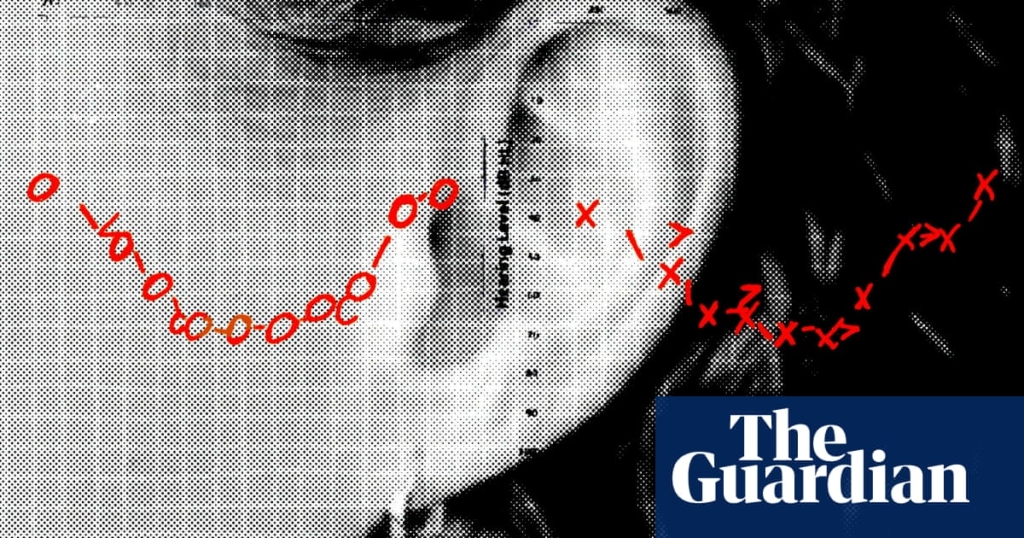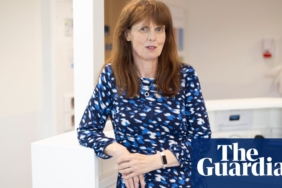Bu içerik bir kişinin yaşadığı işitme kaybını keşfetme sürecini anlatıyor. İçerikte, işitme sorunlarıyla ilgili farkındalık yaratma ve erken teşhisin önemini vurgulanıyor. Yazar, işitme kaybıyla başa çıkmak için aldığı adımları ve işitme cihazlarının yaşamını nasıl değiştirdiğini anlatıyor. Ayrıca, işitme kaybının sağlık üzerindeki etkileri ve yaşam kalitesi üzerindeki olası sonuçları da ele alınıyor. Yazar, işitme kaybının genetik olabileceğini ve bu nedenle çocuklarının düzenli olarak kontrol edildiğini belirtiyor. Son olarak, yazarın yaşadığı deneyimler ve işitme kaybıyla başa çıkma stratejileri paylaşılıyor.
[ad 1]
Kaynak: www.theguardian.com
I thought I was just a bad listener.
I didn’t like podcasts. I’d routinely interrupt conversations, asking “what?”, not able to keep up. I could barely detect song lyrics and tended to prefer classical music. I studied literature throughout college and graduate school, so I assumed I was a textual learner. Conversations were difficult, especially in crowded places; I chalked that up to a deficit of personality.
Maybe I was easily distracted, I would tell myself when I turned a podcast off after just a few minutes. When I lost the thread of what friends were saying, I reasoned that I preferred quieter spaces over loud bars.
A few years ago, I started to raise the volume on my television set and turned on the captions. Streaming technology had poor sound quality, I figured.
In 2023, I took my three-year-old daughter to see an ear, nose and throat doctor after she suffered from frequent and repeated ear infections.
While the doctor discussed ear tube surgery to help my daughter, I mentioned my own recent frustrations with hearing. At work as a creative writing instructor, I found myself cupping a hand behind my ear to better understand what my students said. Perhaps he could clean out my ears and then I’d be fine.
He asked me a series of questions. Did I think my hearing was getting worse? When I said yes, he recommended a separate appointment with an audiologist.
I showed up a week later, slightly annoyed – this was a lot of steps for what I assumed was a simple ear cleaning. But after a hearing test, the audiologist came out of the sound booth and explained that I had congenital hearing loss.
At 41, with no family history of hearing loss, apart from age-related loss, I was diagnosed with moderate mid-frequency sensorineural hearing loss, which means nerve-related malfunction in the inner ear structures. It’s commonly known as “cookie bite” hearing loss due to the U-shape it makes on an audiogram – as if someone took a bite out of a round cookie. It’s a cute name, but I was stunned. I wasn’t expecting this.
The most common sound at midrange frequency is human speech, according to Winnie Fu-Feng, a pediatric audiologist for Mass Eye and Ear with Mass General Brigham. That’s why I couldn’t understand many conversations and felt that people mumbled.
The most common types of hearing loss Fu-Feng sees are age-related losses in adults or loud noise exposure. In children, conductive hearing loss is the result of multiple ear infections. Cookie bite hearing loss is the most rare kind. It “only accounts for 0.7-1% of all sensorineural hearing loss and is genetic”, Fu-Feng said.
With cookie bite loss, early detection is critical so a patient can be outfitted with hearing aids, which are the only way to mediate the loss. Cookie bite loss can’t be reversed and it doesn’t improve. It can also worsen as a person ages, which is what I’m experiencing. Fu-Feng recommended for anyone who is concerned about their hearing or someone they know should speak to their doctor, she said – input from friends and family is important.
My audiologist and Fu-Feng offered reasons why my hearing loss went undetected for so long, even though I was likely born with it. I was born in 1982, and universal newborn screening hearing tests were 10 years in the future. I didn’t have any speech delays, passed school hearing tests and performed well in school. I was able to adapt until I couldn’t. For decades it went undetected, until my late 30s. That’s when I noticed my difficulty understanding conversations, turning up the volume on the television, or struggling to hear in loud places – all signs of hearing loss, according to Fu-Feng.
I started to recall many instances in my life, even in middle school, when I couldn’t understand a teacher’s instruction during a play rehearsal. Even at a young age, I assumed that my listening skills were the issue.
During my test with the audiologist, she observed that I read her lips and tracked her body movement during our conversation. I had no idea I was working so hard to communicate with others.
after newsletter promotion
The audiologist outfitted me with hearing aids. Once I left the office, shocked by my diagnosis, I asked myself: what have I been missing? What on earth have I been agreeing to all these years? As a journalist, I wondered if I had made huge errors during interviews. Had I said yes to colleagues, baristas, friends and my kids in certain situations even though I was likely misunderstanding the question?
My new hearing aids made the world incredibly loud. Even my hair made noise now, brushing against the hearing aids’ tiny microphone, which carries sound to the amplifier. After two weeks of noise overload, I began to adapt. In the classroom, I could hear speech more clearly – no more cupping my ears to catch snippets of a conversation. About a month after I got my hearing aids, I went to a folk concert and almost wept: I could now pick out the song lyrics. It was beautiful.
Hearing aid technology has improved dramatically; my pair is Bluetooth-enabled, so I can listen to music directly through my devices or take a call, which makes me seem like a spy, my two young children tell me.
After a groundbreaking 2011 study from Johns Hopkins on the link between hearing loss and the risk for dementia, public perception of hearing loss has changed dramatically, said Fu-Feng. Prior to the study, Fu-Feng explained, people used to joke that hearing was simply part of aging. Now there is a more widespread understanding of how hearing loss occurs and how it can affect health. For instance, hearing loss can result in social isolation and puts people at risk for depression and other health issues.
I hadn’t put together the clues about my own hearing loss, because I was young. I didn’t think I fit the profile, but I now realize this stereotype kept me from seeking help.
Because cookie bite hearing loss is genetic, my two children have now been screened, and so far their hearing is normal. They will be screened every three years.
I take an annual hearing test to check whether my hearing loss has progressed and to adjust my hearing aids. I wear both hearing aids daily and advocate for myself in day-to-day situations, such as asking students to speak up in class. If I’m in a loud restaurant, I ask people to face me so I can read their lips. Since my diagnosis, I understand it’s not an issue of being a good listener or easily distracted. I now fully hear the ramblings of my two kids, and I love every moment.
But I still think the sound quality on a streaming movie is terrible – and I always use captions.
-
Maggie Neal Doherty is a freelance journalist, opinion columnist, and writing instructor from Kalispell, Montana.







Yorumlar kapalı.